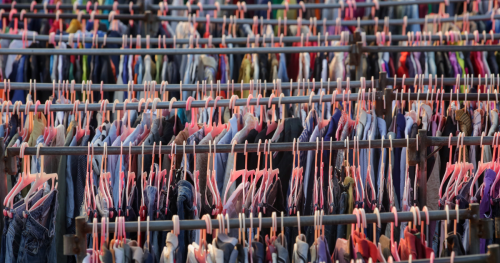 In recent years environmental, social, and governance (“ESG”) matters have become a top priority for businesses across various sectors, including fashion and luxury. Recent case law showed how what started as a voluntary commitment is now a strategic imperative. Regulators and investors are demanding transparency, ethical sourcing, and accountability—especially in the context of outsourced manufacturing.
In recent years environmental, social, and governance (“ESG”) matters have become a top priority for businesses across various sectors, including fashion and luxury. Recent case law showed how what started as a voluntary commitment is now a strategic imperative. Regulators and investors are demanding transparency, ethical sourcing, and accountability—especially in the context of outsourced manufacturing.
In line with this trend, on May 26, 2025, several public and private actors executed the so called “Protocollo d’Intesa per la Legalità dei Contratti di Appalto nelle Filiere Produttive della Moda”[1] (the “Supply-Chain Agreement”). The initiative aimed at fighting illegal labor practices, such as modern slavery and unlawful exploitation of workers (so called “caporalato”), by offering the fashion industries a comprehensive set of guidelines and creating a shared digital platform for monitoring suppliers / sub-suppliers. The Supply-Chain Agreement was promoted by the Prefettura di Milano and endorsed by numerous key public institutions (including Regione Lombardia, the Tribunal and Public Prosecutor’s Office of Milan, Carabinieri and Labor Inspectorate), as well as industry associations, trade unions, and the Politecnico of Milan.
The initiative mirrors a similar agreement previously adopted in the logistics sector and represents the growing commitment to transparency and ethical practices in strategic industries.
-
The Supply-Chain Agreement at a glance
The Supply-Chain Agreement (currently applicable on a voluntary basis) promotes, amongst others:
- Transparency through a centralized “Green List” of compliant suppliers, managing and monitoring the fashion supply-chain;
- Audits and controls across all levels of the supply-chain;
- Incentives and a rewarding system for companies that meet ESG and labor standards.
One of the central features of the Supply-Chain Agreement will be the creation of a Supply-Chain Platform, to be developed by a Technical Committee, requiring companies to upload and regularly update documentation related to their companies’ organization; supply chain structure and contracts; tax and contribution regularity; production-related data; labor and social security compliance; and workplace health and safety measures.
Access to the Supply-Chain Platform will be tiered based on the company’s role in the supply-chain and will ensure data confidentiality and segregation of information.
-
Recent enforcement trends
The decision to conclude a Supply-Chain Agreement builds on a series of investigations conducted by the Public Prosecutor Office of Milan, that led to the application of the monitorship pursuant to Legislative Decree No. 159/2001 (the “Anti-mafia Code”) against several luxury brands outsourcing their manufacturing activities.
In a nutshell, what the Public Prosecutor mainly complained was the absence of an adequate system of controls by the luxury companies on their supply chain[2]. Indeed, it was discovered that suppliers used to sub-supply manufacturing activities to cooperatives, operating in violations of basic HSE, modern slavery and human rights principles.
According to the Public Prosecutor and the Court of Milan, the lack of such controls by luxury companies facilitated the unlawful exploitation of workers committed by their suppliers and sub-suppliers. Indeed, the companies involved in the probes were not able to demonstrate their actual ability to assess third parties’ adherence to H&S, labor and human rights principles and regulations. The Court found that the companies have never assessed the real production capacity of the suppliers / sub-suppliers, nor conducted any inspections or audits to ascertain the real working conditions and environments, etc.
-
The role of the Model 231 in the Anti-mafia Code system
A central role in these investigations was played by the assessment on the effective implementation of the compliance systems pursuant to Legislative Decree No. 231/2001 (the “Decree”) (the so-called “Model 231”)[3]. Indeed, the Court found that the companies had not implemented proper controls able to avoid / mitigate the offense of unlawful exploitation of workers within their supply-chain. In accordance with the Anti-mafia Code, the Court appointed monitors with the task of oversight of a series of activities, including the revision and strengthening of companies’ Model 231 and controls to avoid / mitigate the risk of labor exploitation and the violation of human rights.
Indeed, the implementation of an effective Model 231 is certainly of primary importance to avoid sanctions as well as monitorship provided by the Anti-mafia Code. However, to serve as a valid tool in this context, Models 231 shall not be mere formal documents. Rather, they must be tailored on the companies’ activities and grounded on an effective system of procedures and controls as well as accompanied by awareness.
-
What could be the Strategy?
Case law and the Supply-Chain Agreement showed that companies must move beyond the surface-level of the ESG commitments implementing adequate compliance systems, including:
- appropriate set of procedures to select and manage suppliers and sub-suppliers, including controls on the compliance of the supplier with ESG, H&S, human rights, modern slavery, unlawful labour exploitation regulations, ;
- conduction of periodical audits over suppliers and sub-suppliers, to assess their compliance with the above-mentioned principles and requirements;
- training and awareness programs for employees, executives, and third parties (including suppliers and sub-suppliers) on H&S, ESG and supply-chain compliance hot topics;
- contractual safeguards, by including specific clauses in the agreements with the suppliers – g. declaration by the supplier on its compliance with the Decree, compliance system of the company, regulations and principles on ESG, H&S, etc.; extension of the suppliers’ commitment also to their sub-suppliers; right of the company to conduct audits on suppliers/sub-suppliers; authorization for sub-supply; and automatic termination clause in case of violation of any of the above.
[1] *protocollo-moda-26.05.2025.pdf.
[2] Including the preliminary assessment and selections requirements of the suppliers, conduction on audits on suppliers and sub-suppliers, etc.
[3] In a nutshell, the Decree introduced corporate criminal liability in connection with certain predicate offenses – e.g. bribery, corporate, tax, H&S offenses -whether committed by companies’ associates, in their interest or to their benefit. To try to avoid corporate criminal liability companies shall, amongst others, adopt and effectively implements an adequate compliance system, suitable to prevent /mitigate the specific type of offense committed (i.e., the Model 231).


